UNESCO Recommendation on Open Science: a response from cOAlition S
12/01/2022
cOAlition S welcomes the landmark UNESCO Recommendation on Open Science that was adopted at the 41st session of its General Conference in November 2021. The document provides an international framework where Open Science is viewed as a global public good, and where the equitable sharing of scholarly results is the default.
The recommendation related to scientific publications (7a) dovetails with Plan S in that all research articles should be freely available at the time of publication and that any transfer or licensing of copyrights to third parties should not restrict the public’s right to immediate open access to a scientific publication.
In addition, cOAlition S actively supports the view that “publications (…) that are openly licensed or dedicated to the public domain should be deposited in a suitable open repository.”
We also welcome the recommendation on developing an enabling policy environment for open science. Like Plan S, the UNESCO Recommendation seeks to “encourage responsible research and researcher evaluation and assessment practices, which incentivize quality science, recognizing the diversity of research outputs, activities, and missions”.
We recognize the urgency expressed in the Preamble of the Recommendation to harness science in the fight against humanity’s burning challenges.
As an international alliance promoting to accelerate the implementation of Open Science and Open Access policies, cOAlition S urges all actors in academic publishing to work together for a fair, affordable, equitable, and diverse research landscape, where open and early sharing is the norm; to respect researchers’ rights to their work; and for an ecosystem of open access research infrastructure and services, avoiding locking in inequitable and unjustifiably expensive business models.
1. Strengthen coordination and direct funding towards Open Science policies and practices and open scholarly infrastructures.
2. Support a globally equitable pricing system for Open Access publishing services that takes into account differences in purchasing power as well as institutional equity and diversity.
3. Coordinate legislation ensuring that intellectual property rights remain with researchers in all of their publications, data, and other types of scholarly outputs.
UNESCO Recommendation on Open Science: a response from cOAlition S [download pdf]

